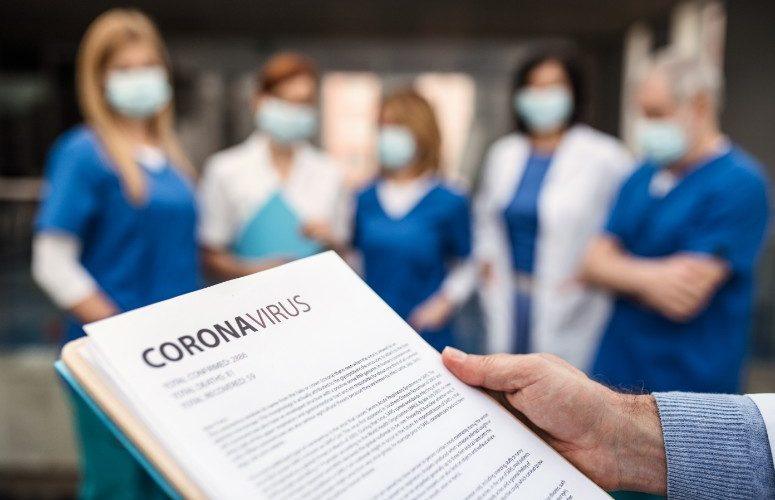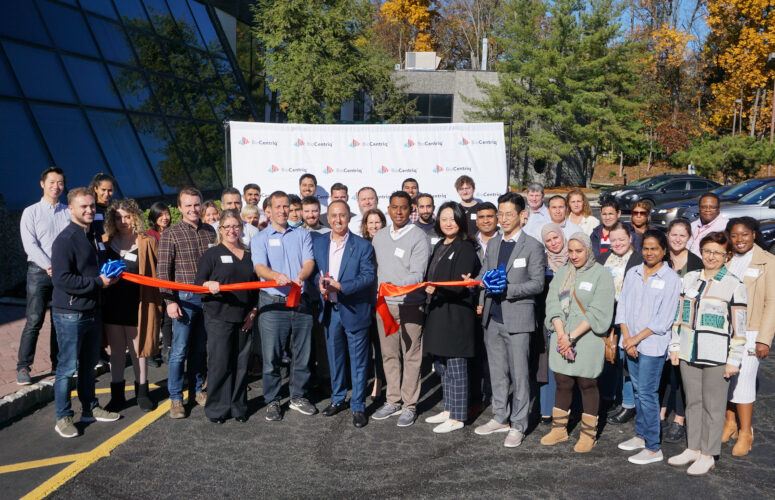
BioNJ, NJ Health Care Quality Institute Release Report to Strengthen NJ’s Health System
On Apr 7, 2021BioNJ, an advocate for the life sciences industry, and the New Jersey Health Care Quality Institute, a nonprofit health care improvement organization, released an independent, far-reaching report designed to strengthen the state’s health system in the wake of the COVID-19 pandemic.
The two organizations brought together experts from all sectors of the health care system to form the COVID 19 Work Group, which created “Emerging from COVID-19: An Action Plan for a Healthier State.”
The Action Plan focuses on four key areas:
- Creating and supporting a resilient and diverse health care workforce.
- Increasing the use of new ways to deliver and pay for health care
- Addressing Social Determinants of Health to achieve greater equity.
- Revitalizing and reorganizing Public Health Infrastructure.
Each section outlines the problem and solution — and then provides multiple recommended actions. The Action Plan contains 24 recommended actions and a scorecard showing how each can be implemented.
“BioNJ is proud to release this report in partnership with the Quality Institute. The report celebrates the dedication of the health care workers who protected and cared for so many; the resourcefulness, resiliency and collaboration across the entire health care ecosystem; and the innovation of the biopharmaceutical industry that brought forward testing, therapies and vaccines in record time,” said Debbie Hart, founding president and CEO of BioNJ. “In that spirit of positive change and action, the Action Plan considers what went well and what areas need to be addressed to ensure we are better prepared for future pandemics.”
The pandemic exacerbated existing issues and inequities in the State’s health care system. At the same time, the pandemic accelerated innovations that should continue even after the pandemic is over.
“We have real opportunities right now to strengthen our health system and emerge from the pandemic with a system that works better for everyone in New Jersey,” said Linda Schwimmer, president and CEO of the New Jersey Health Care Quality Institute. “We sought a wide range of input from around our State, but we also learned from other states. We hope our independent recommendations create the foundation for lasting change and will be useful to the State as well as the private sector and advocates in New Jersey.”
As the visionary and co-funder of this project, BioNJ provided thought leadership, supported the work group process and served in an advisory capacity. The Quality Institute conducted the research, convening and drafting of the Action Plan.
“As we convened the experts and interviewed those on the frontlines fighting the pandemic, priority areas jumped out to us,” Schwimmer said. “One area was the need to strengthen and support our health care workforce. This pandemic has taken a toll on them — causing trauma, illness, financial stress and leading to earlier retirements.”
The section of the Action Plan on strengthening the health care workforce includes multiple recommendations, such as better use of the Medical Reserve Corps, which identifies, trains and deploys volunteer physicians, nurses, EMTs and other professionals. Another recommendation calls for improving existing licensing and credentialing systems to recruit and deploy health care workers more expediently.
Under the section on alternative delivery of care and payment models, the recommendations call for the State to move forward with the pending Telehealth Review Commission to support and guide the growth of telehealth, including remote monitoring, which played a critical role during the pandemic and will continue to grow in importance.
Under the section on alternative delivery of care and payment models, the recommendations call for the State to move forward with the pending Telehealth Review Commission to support and guide the growth of telehealth, including remote monitoring, which played a critical role during the pandemic and will continue to grow in importance. The use of telehealth and remote monitoring was also critical for continuity and access in clinical trials and should be continued, according to the report.
The Action Plan also focuses on the changes taking place in long-term care, and highlighted the need to advance payments based on quality as well as models that enable people to age at home in their communities. This section also highlights the role of primary care providers in responding to public health emergencies, and how they can partner with public health officials in the future.
The pandemic revealed how factors such as an individual’s race, ethnicity or socioeconomic status increased their likelihood of facing poor health outcomes, even death. The section on social determinants of health calls for identifying both long-term interventions to create systemic change while also taking steps to alleviate the more immediate impact of the pandemic in the short term.
The report also addresses the State’s public health infrastructure, and says there is a need for increased collaboration, shared resources and greater alignment across New Jersey’s many public health departments.
When compared to national averages, New Jersey health departments are under-resourced, ranking 41st out of 50 states in public health expenditures. There is a need for greater support and also reorganization. Research should be conducted to explore whether New Jersey would benefit from a regionalized approach, rather than a patchwork of county and local offices, according to the report.
“Beyond our current health care emergency, our nation’s need to address critical public health challenges is only increasing with disease outbreaks, vaping, the opioid epidemic, extreme weather events and other crises. Understaffed public health departments cannot take on these crises alone,” the report said.
The goal of the Action Plan is for New Jersey to emerge from the global pandemic better prepared for any future crises — and with a stronger health system for all. “Emerging from COVID-19: An Action Plan for a Healthier State, “includes specific policy changes as well as long-term interventions to create systemic change. “We hope the recommendations will serve as a guiding light taking us forward from the darkest days of the pandemic,” the Action Plan concludes.
To access more business news, visit NJB News Now.
Related Articles:





